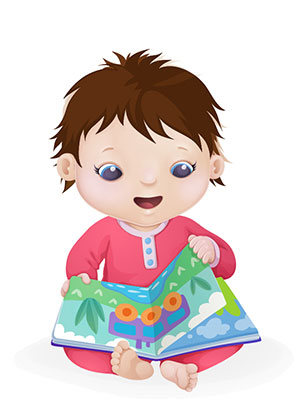
All child have their own timetable, but you can watch for certain developments in your 1-year-old. Celebrate with your child as he reaches or nears these milestones.

Cognitive
-
Begins to have a sense of time (nap after lunch, bath before bed)
-
Actively explores objects by touching and moving (shaking, banging, throwing)
-
Has a good understanding of object permanence (things he can’t see are still there)
-
Searches for hidden items; puts things in and takes them out of containers
-
Continues to explore and gain an understanding of the proper use of objects (sweeping with a broom, pointing a remote at the TV)
-
Begins to enjoy pretend play, especially of everyday activities, like pretending to sleep or eat
-
Can follow a simple command (“Give me the spoon”)
-
Points to objects you name (his nose, a picture of a cat in a book)
Motor
-
Pulls self to standing
Stands upright unsupported, at least briefly
-
Cruises using furniture for support (takes steps while holding on)
-
May even walk fairly well
-
Climbs up stairs; scoots down
Claps hands
-
Drinks from a cup
-
Feeds self with hands
-
Waves
-
May be able to pick up a small object with good accuracy
-
Still releases objects from hands without much control
-
May scribble with a fat crayon
Communication
-
Uses at least one to two words around first birthday
-
Understands around 70 words by first birthday
-
Uses an average of 10 words by 15 months
-
May have larger vocabulary (varies widely)
-
Responds to questions and requests (“Want more?” “Come here.”)
-
May show interest in picture books (connecting words and images)
Ready for signs. Playing peekaboo, waving good-bye, and performing songs with gestures help prepare your baby for the idea of communicating with baby sign language. If you’d like to teach him some signs in the coming months, these actions are a good way to lay the groundwork.
Social
-
Cries or becomes upset when parent leaves
-
Begins to show fear in some situations
-
May alternately cling to and pull away from you
-
May show preference for one particular transitional object (such as a blanket) for comfort
-
Shows preferences for certain people and things
-
Beginning to understand he’s a separate person from you with his own preferences, feelings, and ideas
-
May say “no” to express frustration
-
May show empathy (for example, patting your back when you’re upset)
-
Prefers parallel play (playing next to, rather than with, another child)



